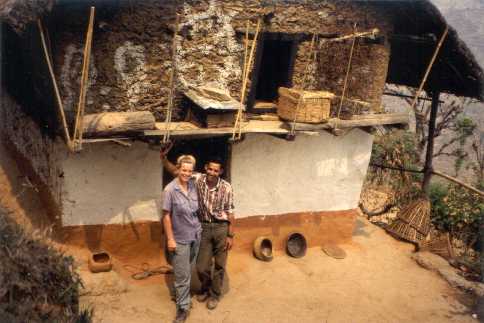

The rich tradition of beekeeping is associated with the genetic diversity of Jumla Apis cerana, the availability of bee forage plants and a wealth of indigenous knowledge on beekeeping. Nowadays only the poorest of the poor in remote villages keep native Apis cerana bees. At present, there are around 5000 log hives with bee colonies in Jumla district.The Jumla strain of Apis cerana is a good genetic race in the sense that it is larger, and produces more honey and has a lower level of absconding than other strains like Apis cerana Himalaya and Apis cerana India.
In Jumla, most of the farmers living in remote villages above 2600m keep bees primarily for selling honey and other value-added products. Most beekeepers do not have ' Khet'( irrigated land ) for rice growing and a system of bartering honey for rice from lower altitude areas has existed for many years. Beekeeping is one of the major sources of income for beekeepers, as there are limited options for cash income.This enterprise provides benefits to individual beekeepers at a local level (food, nutrition, better crop yield through pollination cash income, medicine, and so on ) as well as to society, at national regional, and global levels.
Project Accomplishments:
- Awareness about the conservation of indigenous honeybees
.jpg)
Through applied research, training and extension activities, the project raised awareness among beekeepers, honey hunters a local farmer- led organizations government and non- government organizations about the importance of conserving Apis cerana and other wild bees.
- Women farmer's participation in beekeeping enterprises
.jpg)
.jpg)
The project initiated the formation of women's groups and trained women who later worked together with other groups. participatory approaches such as PRA tools gender role and examine a way to make project activities relevant to women farmers. Previously, women farmers were being excluded from participating in community development activities with the advent of the project, quite a few women farmers have been trained in both technical and organizational aspects of beekeeping.
Image source: Google
Nice dear . Upvote and followed do follow me thanks. Stay blessed.
Downvoting a post can decrease pending rewards and make it less visible. Common reasons:
Submit